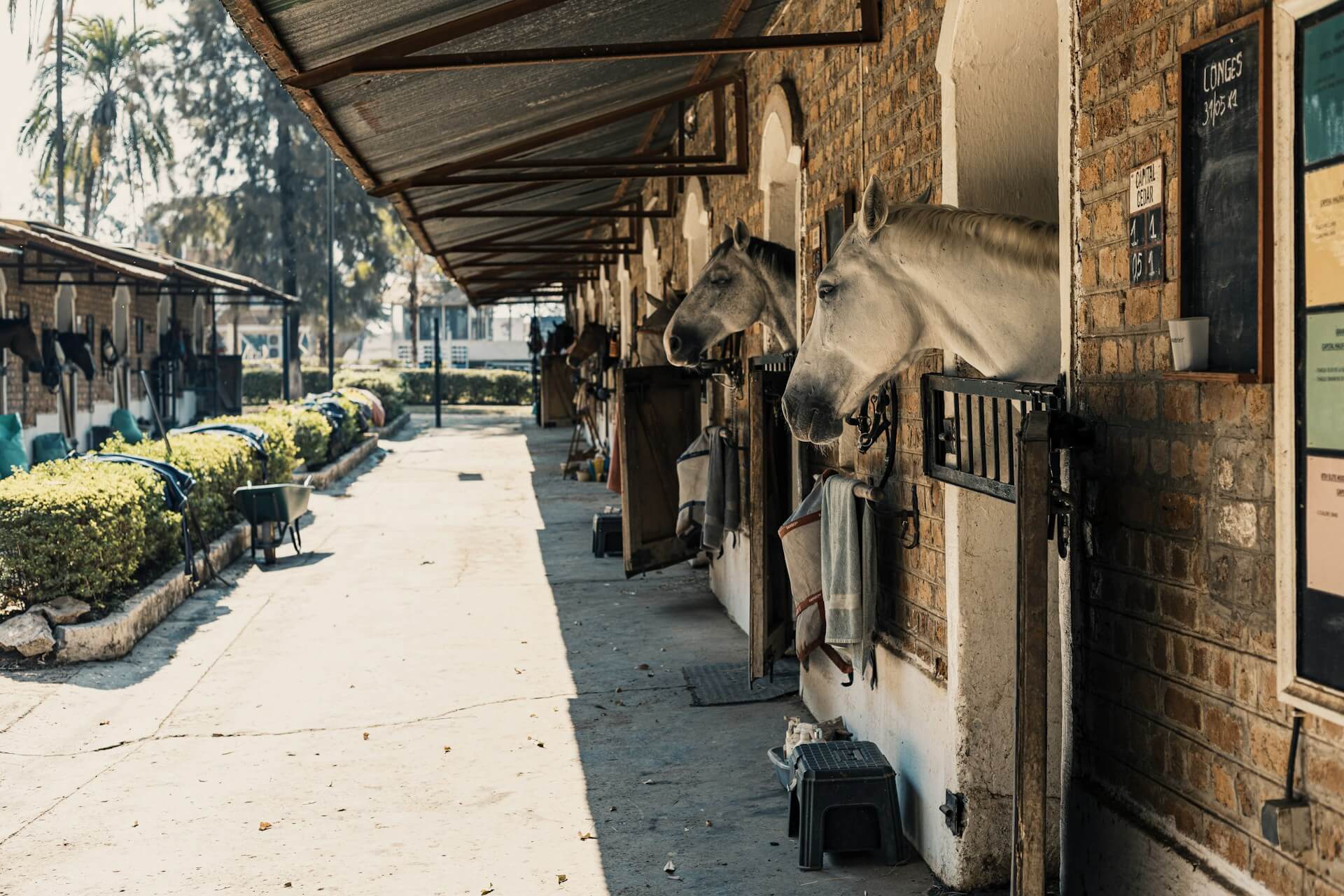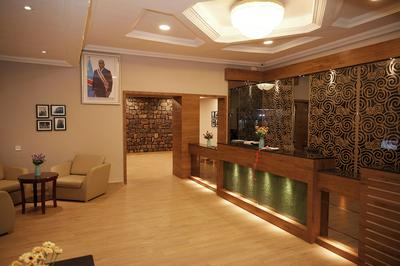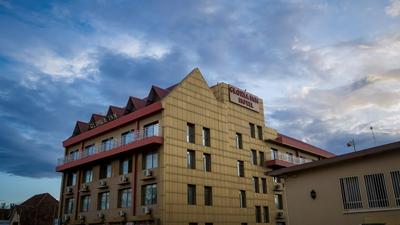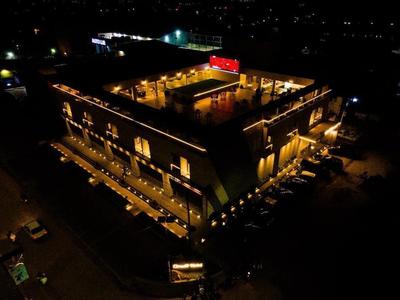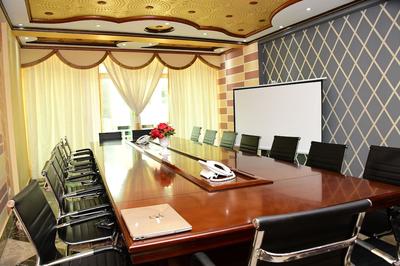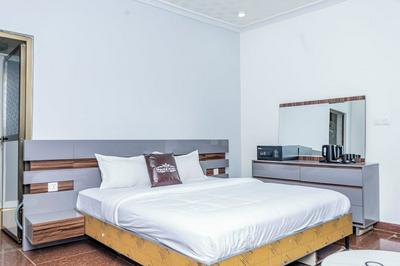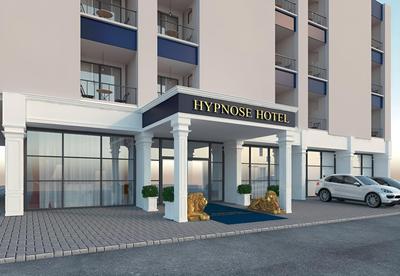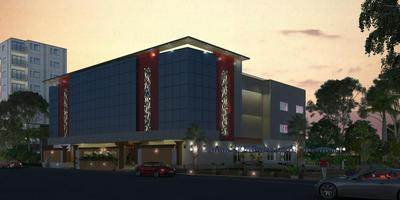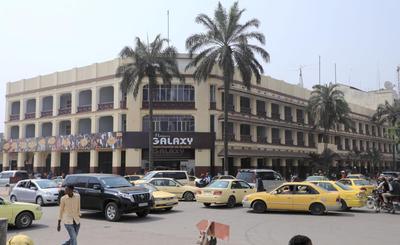When to visit Lubumbashi?
Lubumbashi experiences a tropical savanna climate, characterized by a wet season and a dry season. The wet season spans from November to March, bringing heavy rains and humidity. The cooler, dry season lasts from April to October, making it the most favorable time for visitors. In the cooler months, especially June through August, temperatures can drop slightly, offering moderate temperatures perfect for exploration.
Summer in Lubumbashi (December to February) can be quite hot with daytime temperatures often exceeding 30°C (86°F). However, this is also when the landscape is lush and vibrant, and the flora comes to life, making it visually stunning. While the wet season does have a charm, travelers should be prepared for sudden downpours.
Spring (September to November) offers pleasant weather, as it transitions into the wet season. This period sees less rainfall, and temperatures remain comfortable, making it another good time for outdoor adventures. Autumn, or the rainy season from November to March, often presents opportunities for bird watching as migratory species visit the region.
Each season offers a unique perspective on the city's beauty and culture, so your choice depends on the activities you enjoy. For favorable weather and outdoor activities, the dry season is ideal.
How to get to Lubumbashi?
Traveling to Lubumbashi can be an exciting part of your journey. The city is served primarily by Lubumbashi International Airport (FBM), which has connections to major cities in Africa and some international flights. The airport is located approximately 10 kilometers from the city center.
For travelers coming from Kinshasa or other regions within the Democratic Republic of Congo, domestic flights are available and generally take about 1.5 to 2 hours. Buses are also common, offering a more budget-friendly option. Several bus companies operate routes to Lubumbashi from Kinshasa and other cities, with journey times varying significantly based on distance and road conditions, sometimes taking up to 24 hours.
If you prefer to drive, the roads connecting Lubumbashi to major cities can be challenging, but they offer the chance to see rural Congo. Car rentals are available, though public transport is preferred by many locals.
Lastly, train journeys can also be a scenic way to reach Lubumbashi. The railway network, while not as reliable as it once was, does connect Lubumbashi with several other cities.
Tourist activities in Lubumbashi
Lubumbashi offers a diverse range of activities that cater to different interests. If you love the outdoors, head to the nearby Lubumbashi Wildlife Park, where you can encounter native species and enjoy peaceful walks amongst nature. For a taste of the local culture, visit the vibrant arts district, where street performers and artists display their talents.
Explore the city’s rich history by visiting the Musée National de Lubumbashi, which chronicles the area’s mining heritage, or take a stroll through the bustling markets where you can find local crafts, textiles, and food.
In the evenings, there are various cultural events and exhibitions, with many galleries and performance spaces showcasing Congolese art and music. And don’t miss out on local cuisine! Enjoy dining in traditional restaurants where you can savor dishes like fufu and fried plantains.
Nightlife in Lubumbashi is vibrant, especially on weekends, with plenty of bars and dance clubs that play everything from Afrobeat to hip hop. Also, don’t forget to check local festivals, as they often highlight unique cultural experiences!
Events and festivals
Lubumbashi hosts an array of events throughout the year, reflecting its rich cultural heritage. One of the most notable events is the Lubumbashi Carnival, celebrated in February. This lively festival features colorful parades, traditional music, and dance, showcasing the city’s cultural diversity.
Another important event is the annual Mining and Trade Fair held in late May or early June, where local businesses gather to promote their products, related to the mining industry, attracting visitors across the region.
The Fête de la Musique (Music Festival) is usually celebrated in June, bringing together local musicians for a day filled with performances and festivities.
Additionally, the city observes Independence Day on June 30, which sees public celebrations, including parades and cultural events throughout the city. A visit during these times offers unique insights into the local culture and vibrant community spirit.
Family and kids activities
Lubumbashi is a family-friendly city with various activities suitable for children. Start your journey at the Lubumbashi Wildlife Park, an accessible space where kids can encounter natural wildlife in their habitat, providing both fun and education.
Parks are plentiful, with places like Place de la Républic, where families enjoy picnics and leisurely strolls. Spacious green areas and playgrounds are perfect for younger children to explore.
For educational experiences, the Musée National de Lubumbashi is a great option, showcasing local history and interesting artifacts that can captivate children's imaginations.
The city also has a number of children’s friendly events and festivals throughout the year, so check the local calendar for family-oriented happenings. Finally, local cinemas offer a safe environment for family film nights with a selection of movies suitable for all ages.
What to see in Lubumbashi?
Lubumbashi is rich in cultural and historical attractions. Here are some of the must-see places:
- Musée National de Lubumbashi – A fascinating museum focused on the history of the region, particularly its mining heritage.
- Lubumbashi Wildlife Park – A family-friendly destination to see wildlife, perfect for nature lovers.
- St. Pierre Cathedral – An impressive cathedral with beautiful architecture, often visited by tourists.
- La Place de la République – A central square where locals gather, ideal for people-watching.
- Empire Building – A historical landmark that reflects the colonial style architecture of the past.
- Local Markets – Markets such as the Mbuyu Market offer insights into local life and are perfect for souvenir shopping.
- Fish River – A picturesque spot for picnicking and walking along the riverbanks.
Each of these spots provides a glimpse into the city's vibrant culture and history, making them well worth a visit.
Accommodation in Lubumbashi
Lubumbashi offers a variety of accommodations catering to all kinds of travelers. From budget-friendly hostels to luxurious hotels, there’s something for everyone. Popular districts like Kamalondo and the city center provide convenient access to attractions and amenities.
For those seeking comfort, consider staying at the Pullman Lubumbashi Grand Hotel, known for its great service and modern amenities. Mid-range options like Hotel L’Escapade also offer comfort without breaking the bank.
If you are on a tight budget, there are several hostels available that provide basic amenities at lower prices. Self-catering apartments can also be found in the city, giving you the flexibility to cook your meals.
While booking, consider the location that suits your itinerary best, as staying near the attractions can save you travel time and enhance your experience in Lubumbashi.
Important numbers and information
- Emergency Numbers: Police: 101, Ambulance: 112, Fire: 118
- Tourist Information Centers: Lubumbashi Tourism Office, Avenue de la République
- Main Hospitals: Hôpital Général, Clinique du Parc
- Airport Contact: Lubumbashi International Airport, +243 82 12 765
- Public Transport Info: Consult local taxi services for updates on routes
- Taxi Apps: Bolt, Uber (in some areas)
- Currency: Congolese Franc (CDF)
- Payment Methods: Cash is commonly used, but some vendors accept cards.
Where to eat?
Pleasing your palate in Lubumbashi is easy, with an array of dining options. The local cuisine is diverse, with dishes reflecting the cultural influences of the region. Try local delights like fufu, cassava leaves, and grilled meats widely found in many eateries.
The city offers various restaurant districts, with popular spots located around the central market area and near the Province Governor's office. Restaurants such as L’Insolite and Le Grand Restaurant specialize in authentic Congolese cuisine, while also offering international dishes.
If you’re looking for budget-friendly eats, consider street food options, ranging from fried snacks to fresh fruit sold by vendors throughout the city. Generally, meals at local restaurants average between $5 to $15, making dining accessible for most visitors.
For an authentic experience, venture into local markets where you’ll find stalls serving traditional dishes. Sampling local flavors is one of the best ways to enjoy Lubumbashi!
Nightlife – where to go out?
Nightlife in Lubumbashi is energetic and vibrant, with plenty of establishments where locals and visitors alike can unwind. Popular districts for nightlife include Avenue du Haut-Katanga and the area around the main square, where bars and clubs stay lively until late.
One must-visit bar is Le Café d'Afrique, offering a cozy atmosphere with great drinks and occasional live music. For a dance night, check out Club 23, known for its lively beats ranging from local Congolese music to international hits, perfect for dancing the night away.
Another favorite is Le Lounge, which boasts a beautiful setting for both cocktails and conversation, ideal for a laid-back evening.
With its welcoming environment and spirited atmosphere, Lubumbashi has something to offer everyone looking for a good time at night. Whether you enjoy a quiet drink or dancing till dawn, you’ll find the city's nightlife both enjoyable and unique.
Transport and taxis
Transport in Lubumbashi offers various options for navigating the city. Public buses and taxis are the primary means of transport. Buses are frequent and budget-friendly, with fares typically costing around 500 to 1,000 CDF depending on your distance.
Taxis are also available, and while some are metered, many rely on set fares. Using established taxi services or rideshare apps like Bolt can ensure safety and convenience, especially for unfamiliar visitors.
It’s important to note that while public transport can be crowded, it remains a vital part of city life. Always verify your route and fare with the driver before starting your journey. Walking is a great way to explore closer areas, allowing you to take in the sights at a leisurely pace.
For detailed travel planning, familiarize yourself with local bus schedules or consult hotel staff for guidance.
- Cars: Rentable but it’s best to know the traffic and road conditions.
- Train Station: Connects to other major cities.
- Safety: Use well-known services for transport at night.
Parking and public garages
Parking in Lubumbashi can vary depending on the area. Central parts of the city have limited parking options, but most hotels offer parking facilities for guests. Public garages are available, where prices typically range from 1,000 to 3,000 CDF per hour depending on the location.
When parking on the street, make sure to follow local regulations and use designated areas to avoid fines. Busy areas, especially near markets or major attractions, may require some patience when looking for a spot.
For added convenience, consider using parking services provided by hotels or restaurants in the vicinity of your destination. Planning ahead can save time and ensure your vehicle is safe while you explore the city.
Surroundings of Lubumbashi
The surroundings of Lubumbashi are rich in natural beauty and offer several day-trip opportunities. One popular destination is the nearby Kundelungu National Park, known for its stunning waterfalls and diverse wildlife, where outdoor enthusiasts can hike and enjoy nature.
Another option is the Kafubu River, perfect for those looking to enjoy a relaxing day by the water or engage in fishing activities. For a glimpse into rural Congolese life, consider visiting nearby villages, where you can experience traditional lifestyles and crafts.
If time permits, a trip to the historical town of Likasi, located about 60 kilometers from Lubumbashi, offers a unique view into local history and heritage. Each of these destinations allows visitors to connect deeper with the natural and cultural aspects surrounding Lubumbashi.
